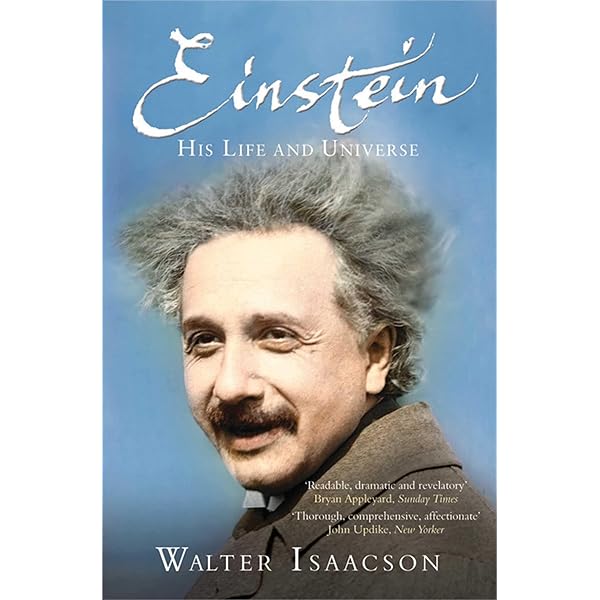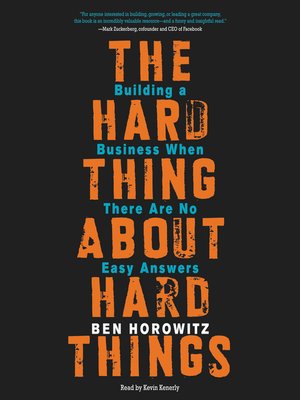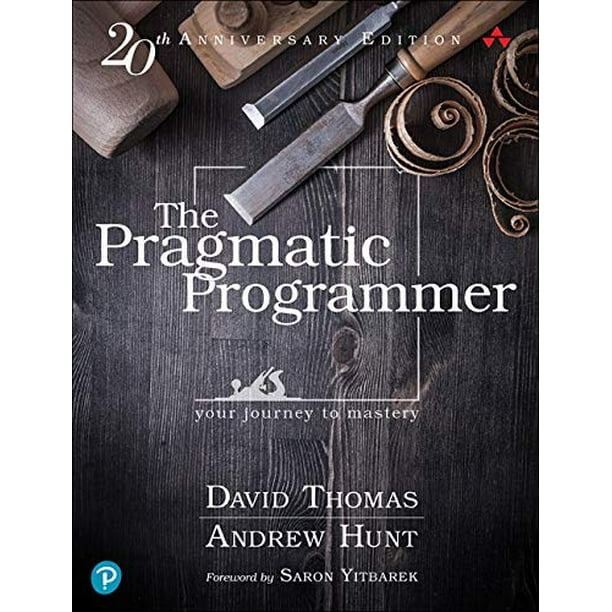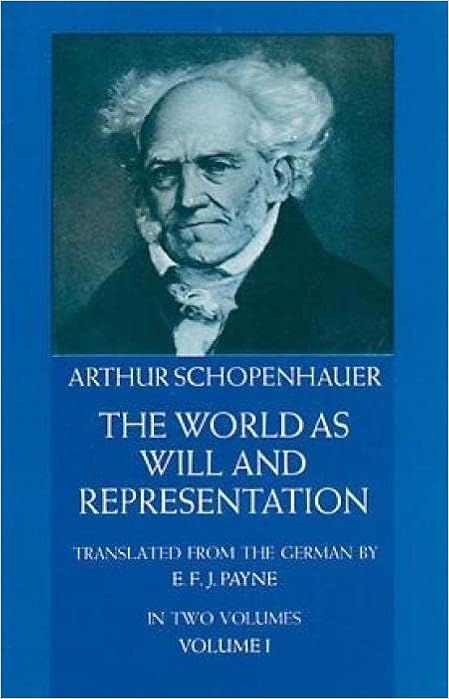Transformative Insights from My Top 12 Books
Throughout my journey as an SVP of Operations and CTO, I've found immense value and inspiration in a diverse range of books. Here are my top 12 favorites, complete with the key insights I gleaned from each and the impact they've had on my professional path.
1. Steve Jobs by Walter Isaacson

Steve Jobs' biography by Walter Isaacson, offers a deep dive into the life of the co-founder of Apple Inc. His journey, riddled with successes, failures, and critical decisions, provides valuable insights for any aspiring leader in technology and beyond.
The book sheds light on Jobs’ unparalleled dedication and almost obsessive attention to detail. Whether it was the hardware architecture, user interface, or even the packaging of products, Jobs pursued excellence in every facet. This obsession extended to creating a seamless and user-friendly customer experience, a tenet that Apple holds till this day. It's a lesson in not just product development but also the cultivation of brand identity and customer loyalty.
"You can’t connect the dots looking forward; you can only connect them looking backwards. So you have to trust that the dots will somehow connect in your future." - Steve Jobs
Jobs' ability to anticipate user needs and design products accordingly was exemplary. His vision for a moreF integrated and user-friendly technology environment led to innovative products that have dramatically influenced the consumer tech industry. This ability to envision and execute industry-disrupting ideas is a takeaway for those looking to leave their mark.
The biography also uncovers Jobs' complex personality. Known for his unwavering and often autocratic leadership style, Jobs was not universally loved. However, his leadership brought forth a team that delivered revolutionary products. This presents an interesting conundrum - how does one balance pushing for excellence with cultivating a positive work environment?
Overall, Isaacson’s biography of Steve Jobs provides an unvarnished look at the life of a tech giant. It paints the portrait of a man whose unyielding passion and relentless pursuit of perfection transformed entire industries. And while Jobs' approach may not be completely replicable or always commendable, the lessons from his journey remain indispensable for anyone aiming to make a significant impact in their field.
2. Good to Great by Jim Collins

“Good to Great: Why Some Companies Make the Leap... and Others Don't” is an extraordinary piece of work by Jim Collins that offers remarkable insights into the factors that can propel a company from merely good to truly great. Collins and his research team embarked on a journey to identify the distinguishing traits that separate these types of companies, ultimately providing a blueprint for sustainable success.
One of the book's fundamental principles that resonated profoundly with me is the 'Hedgehog Concept'. In essence, this concept encapsulates the intersection of three critical elements: identifying what you are deeply passionate about, understanding what you can be the best in the world at, and recognizing what drives your economic engine. This simplicity and clarity are represented by the hedgehog, a creature that knows one big thing and executes it with perfection.
Collins articulates this concept with the statement: "The fox knows many things, but the hedgehog knows one big thing." This was a profound realization for me, as it drove home the importance of focusing our energies, resources, and strategies on our core competencies at Eflyn, rather than dissipating our efforts across multiple fronts. Consequently, I have strived to ensure our technological development, innovation, and customer service align perfectly with our 'Hedgehog Concept'.
Furthermore, the book emphasizes the importance of having the right people on the bus, which highlighted the significance of assembling a dedicated and talented team. It underscored the importance of having team members who are not just competent, but also deeply passionate about the company's vision. This reaffirmed my belief in selecting team members at Eflyn who are not just technically proficient but also share a profound commitment to the mission and vision of the company.
Quotes like, "Greatness is not a function of circumstance. Greatness, it turns out, is largely a matter of conscious choice, and discipline," have profoundly impacted my approach to leadership at Eflyn. It continually drives me to make deliberate choices that propel us from being good to becoming truly great.
Jim Collins' "Good to Great" has not only shaped my professional outlook but also continually serves as an invaluable guide in the journey of taking Eflyn from good to great.
3. The Design of Everyday Things by Don Norman

The "Design of Everyday Things" by Don Norman is a profoundly insightful book that revolutionized my perspective on product design. This masterpiece presents an exhaustive exploration of the psychology of everyday objects, explaining how good design can facilitate an intuitive user experience.
Norman's book expounds on the notion that the design of a product should largely speak for itself. He introduces the concept of 'affordances' and 'signifiers', stating that the design should afford the operation, and the product should have signifiers indicating where the action should take place. A well-designed product should intuitively guide the users on how to interact with it, eliminating any potential guesswork or ambiguity.
As the CTO of Eflyn, a company specializing in interactive kiosks and digital signage solutions, I have found this principle to be indispensable. It emphasized the importance of creating intuitive interfaces and seamless interactions between our customers and our products. It reaffirmed our commitment to designing products that are not just technically superior but also user-friendly and intuitive to operate.
Norman's book stressed that "Good design is actually a lot harder to notice than poor design, in part because good designs fit our needs so well that the design is invisible." This insight helped me appreciate the subtle but powerful role of design in making our products blend seamlessly into the user's everyday life.
The Design of Everyday Things" is more than a book about design. It's a guide to understanding user psychology, usability, and ultimately, customer satisfaction. At Eflyn, it has driven us to prioritize our users' experience, making sure that our kiosks and digital signage solutions are not only functional but also intuitive and enjoyable to use.
4. Einstein: His Life and Universe by Walter Isaacson

"Einstein: His Life and Universe" by Walter Isaacson offers a profoundly insightful journey into the life and mind of one of the greatest scientists of all time, Albert Einstein. This biography provides a comprehensive overview of Einstein's monumental contributions to physics, most notably the Theory of Relativity, shedding light on the determination, curiosity, and creative genius that marked his scientific journey.
Isaacson's depiction of Einstein's creative process struck a chord with me. He portrays Einstein as a defiant rule-breaker who was always eager to challenge established norms and think beyond conventional frameworks. Einstein's genius lay in his ability to view the world differently, asking questions others weren't asking and seeing patterns others weren't seeing.
As CTO of Eflyn, the principles I've gleaned from Einstein's approach have significantly influenced my philosophy towards innovation and problem-solving. The book emphasized the importance of curiosity, creativity, and imagination in achieving breakthroughs and transformative results. Like Einstein, I learned the importance of asking the right questions rather than merely seeking the right answers.
Moreover, Einstein's dedication to his scientific pursuits, despite numerous setbacks and naysayers, was a profound lesson in perseverance. In the fast-paced tech industry, challenges and setbacks are inevitable. But Einstein's journey serves as a reminder that steadfastness in the face of adversity can yield revolutionary outcomes.
Isaacson's "Einstein: His Life and Universe" is not just a chronicle of a scientist's life; it's a testament to the power of curiosity, creativity, and resilience. It is an essential read for any leader or innovator seeking to challenge norms, drive innovation, and navigate through challenges in pursuit of their goals.
5. The E-Myth Revisited by Michael E. Gerber

"The E-Myth Revisited" by Michael E. Gerber is a revolutionary book that dispels common myths about starting and running a business. Gerber’s analysis of the entrepreneurial mindset and the common pitfalls many business owners fall into has been a guide for me in navigating Eflyn's journey.
The most profound insight I gathered from the book is the distinction Gerber makes between working 'on' your business and working 'in' your business. Many business owners, especially in tech startups, can become so engrossed in the day-to-day operations and technical details that they lose sight of the bigger picture. As CTO, I've learned the importance of taking a step back to strategize, plan, and make sure the business aligns with our long-term vision.
The book also stresses the importance of systematizing operations. Gerber states, "Organize around business functions, not people. Build systems within each business function. Let systems run the business and people run the systems. People come and go but the systems remain constant." Following this, I've worked to develop robust systems at Eflyn to ensure the company runs efficiently and consistently, even as team members come and go.
Another valuable lesson from the book is the understanding of different roles within a business – the technician, the manager, and the entrepreneur. Understanding these different roles has helped me strike a balance between day-to-day technical tasks, management responsibilities, and entrepreneurial vision.
"The E-Myth Revisited" is an essential book for any entrepreneur or business leader, especially those in the technology field. It breaks down complex business concepts into actionable insights and presents a roadmap for creating a successful, sustainable business. The lessons it imparts are timeless and universally applicable, making it a valuable addition to any business-oriented reading list.
6. The Hard Thing About Hard Things by Ben Horowitz

Ben Horowitz's "The Hard Thing About Hard Things" is a brutally honest account of the tough realities and challenging decisions faced by entrepreneurs and business leaders. This book has been a source of inspiration, especially in times when things at Eflyn got tough and the path forward was not clear.
Horowitz, a successful entrepreneur himself, offers anecdotes and wisdom from his own experiences, teaching that there are no easy answers or shortcuts to solving the 'hard things'—the complex problems that keep leaders awake at night. This helped me realize that encountering obstacles and difficulties is a natural part of any company's journey. It's not about avoiding these hard things, but about understanding and embracing them as opportunities for growth and learning.
One of the key takeaways for me was the importance of mentorship and surrounding yourself with great people. Horowitz states, "The purpose of a good mentor is to help you think through difficult problems." As a CTO, I often find myself in situations where complex decisions need to be made. Having a mentor and a solid team to rely on has been invaluable in these instances. This insight has led me to invest significantly in building and nurturing a team of motivated, skilled, and creative individuals at Eflyn.
Horowitz also speaks about the importance of creating a strong company culture, a point that resonated with me strongly. At Eflyn, we've made it a priority to cultivate a culture that values innovation, collaboration, and continuous learning.
"The Hard Thing About Hard Things" is more than just a business book—it's a survival guide for anyone embarking on the entrepreneurial journey. It imparts important lessons about leadership, decision-making, and resilience, making it a must-read for business leaders and innovators.
7. The Martian by Andy Weir

"The Martian" is not a typical business book, but its themes of resilience, resourcefulness, and innovative problem-solving have been invaluable to my professional journey. The protagonist, stranded astronaut Mark Watney, faces seemingly insurmountable challenges yet constantly manages to devise solutions using limited resources, a positive attitude, and sheer determination.
Watney's resilience in the face of adversity serves as a powerful metaphor for the challenges we face in business. There will be unexpected obstacles, setbacks, and crises, but it is our resourcefulness and resilience that ultimately enable us to overcome these challenges. This has been particularly relevant to my role at Eflyn, where we frequently have to navigate unknown territories and solve complex problems in innovative ways.
Weir's meticulous attention to detail in crafting a believable, near-future scenario speaks volumes about the importance of thoroughness and foresight in any endeavor. The book inspired me to approach my work at Eflyn with the same level of detail orientation and thoughtful planning. It underscores the fact that every minor aspect can have a significant impact on the overall outcome, a concept that applies equally to technology development.
Furthermore, "The Martian" serves as a brilliant piece of true sci-fi, painting a picture of a future that is logically conceivable based on our current scientific understanding. It's a reminder that, as technology leaders, we're not just solving problems for the present day but also laying the groundwork for the future. We must think beyond the immediate and envision how our technologies might shape the world years, even decades, down the line.
Despite its fiction genre, "The Martian" offers powerful lessons in resilience, problem-solving, and strategic thinking, making it a valuable read for any technology leader.
8. The Everything Store: Jeff Bezos and the Age of Amazon by Brad Stone

"The Everything Store" offers a comprehensive look at the journey of one of the most transformative companies of our time – Amazon. Jeff Bezos, the founder of Amazon, emerges as an inspirational figure, driven by relentless customer obsession and an innovative approach to technology.
One of the most influential lessons I took away from this book is the importance of customer satisfaction. Bezos instilled an ethos of customer obsession into Amazon's culture, striving to make it the most customer-centric company in the world. This focus on the customer has been a cornerstone of Eflyn's philosophy, and reading about Bezos's approach has reinforced and expanded my understanding of why customer focus is vital to a company's success.
Bezos's invention of the Service Oriented Architecture (SOA) is another notable point in the book. SOA revolutionized how companies approached their infrastructure, allowing for more flexibility, scalability, and efficiency. This architectural pattern resonated with my work at Eflyn, where we strive for similar adaptability in our kiosk systems. Bezos's commitment to innovation serves as a reminder that we must always be open to new and better ways of doing things.
The story of Amazon's growth from a small online bookstore to 'The Everything Store' serves as a testament to the power of vision, resilience, and customer obsession. This book is a must-read for any tech leader aiming to drive meaningful innovation and customer satisfaction.
9. In The Plex: How Google Thinks, Works, and Shapes Our Lives by Steven Levy

"In The Plex" gives an in-depth look into the inner workings of Google, a company that has transformed the internet and our lives. The book offers valuable insights into Google's creative culture, resourcefulness, and groundbreaking discoveries.
The inventiveness and resourcefulness Google demonstrated by running the world's most visited search engine using cheap hardware, combined with intelligent software, was a significant lesson for me. It underscored the principle that efficiency and smart design often trump sheer hardware power. At Eflyn, we often work with a wide range of hardware configurations for our kiosks. Keeping Google's philosophy in mind has enabled us to design software that optimally utilizes the available resources.
The book also explores the creation of PageRank, Google's innovative algorithm that revolutionized internet search. It serves as a reminder of how a simple yet brilliant idea can disrupt an industry and shape the world. As a CTO, this encourages me to continuously explore and innovate, seeking new ways to improve our kiosk systems and user experience.
Finally, the creative culture at Google is an element that I found particularly inspiring. The freedom given to employees to explore, experiment, and innovate is truly remarkable. It inspired me to cultivate a similar culture at Eflyn, where our team is encouraged to think outside the box and push the boundaries of what is possible with our kiosk systems.
"In The Plex" is a compelling read, not just for those interested in Google's history, but for anyone looking to understand the mindset and culture that fuel innovation in a tech-driven company.
10. The Pragmatic Programmer: Your Journey to Mastery by Andrew Hunt and David Thomas

"The Pragmatic Programmer" is a timeless guide that instills the wisdom of experienced software practitioners into its readers. The book imparts invaluable lessons in disciplined software development and maintenance, which have been instrumental in shaping my approach to software development at Eflyn.
The book's central message is to treat software development as a craft, with every line of code contributing to the creation of a masterpiece. This notion resonated deeply with me, and I've strived to incorporate this level of precision and excellence in Eflyn's software development processes.
One key takeaway from the book was the emphasis on "DRY" (Don't Repeat Yourself) principle. Avoiding code duplication by creating reusable modules has improved our code efficiency and maintainability, enabling us to streamline the updates and enhancements to our kiosk software.
Another crucial lesson was the importance of designing software to be adaptable to change, given the dynamic nature of user requirements and technology trends. This has driven us at Eflyn to continuously evolve our software architecture, making it scalable and flexible to accommodate new features and enhancements as our kiosk solutions continue to evolve.
"The Pragmatic Programmer" is a must-read for all software developers aspiring to refine their programming practices and cultivate a mindset of continuous learning and improvement in their software development journey.
11. The Innovator's Dilemma: When New Technologies Cause Great Firms to Fail by Clayton M. Christensen

"The Innovator's Dilemma" is a seminal work that analyzes the paradoxical relationship between successful companies and the need for innovation. It imparts crucial insights on why successful firms may fail in the face of disruptive technologies and how to navigate such challenges.
One of the central themes of the book is the concept of 'disruptive innovation', a term coined by Christensen himself. This concept has helped shape my perspective on technological advancements and innovation at Eflyn, influencing us to not only focus on catering to our existing customers' needs but also consider potential future markets and technologies that may disrupt our current business model.
The book emphasizes how it's often more difficult for established companies to adapt to disruptive changes, as they tend to focus more on sustaining innovations – refining their existing products and services. At Eflyn, we've taken this lesson to heart by consistently challenging ourselves to explore new ideas and technologies, no matter how unconventional or risky they may initially seem.
Christensen's insights also inspired us to invest in research and development, enabling us to stay ahead of the curve in the ever-evolving kiosk technology market. His work helped us recognize the need to be flexible, adaptable, and prepared to pivot when the need arises.
"The Innovator's Dilemma" is an essential read for anyone looking to understand the complex dynamics of innovation in the business world, and I found its lessons profoundly influential in navigating the technological landscape as the CTO of Eflyn.
12. The World as Will and Representation by Arthur Schopenhauer

"The World as Will and Representation" stands out as a deeply philosophical treatise that delves into the nature of human will and our perception of the world. It is not a typical business or technology book, yet the insights it provides have profoundly influenced my approach to leadership and technology at Eflyn.
Schopenhauer suggests that our will - our deepest desires and motivations - shapes our representation or perception of the world. Applying this to the business and technology realm, it helps us understand the subjective nature of user experiences and why different people can have such varied interactions with the same piece of technology.
This understanding has encouraged us at Eflyn to be highly user-focused in our design process, recognizing that what we are creating is not just a tool but a means of fulfilling user will and desires. It has underpinned our commitment to creating intuitive, accessible, and effective user interfaces for our kiosks.
The book also provides an introspective look at our own motivations as creators. As Schopenhauer puts it, "We forfeit three-fourths of ourselves in order to be like other people." This quote serves as a reminder to stay true to our unique ideas and visions, resisting the urge to conform solely for the sake of acceptance or short-term gain.
Overall, "The World as Will and Representation" has been an influential read that goes beyond traditional business lessons to provide deep philosophical insights, shaping the way I approach my role at Eflyn and how we design and deliver our products.


